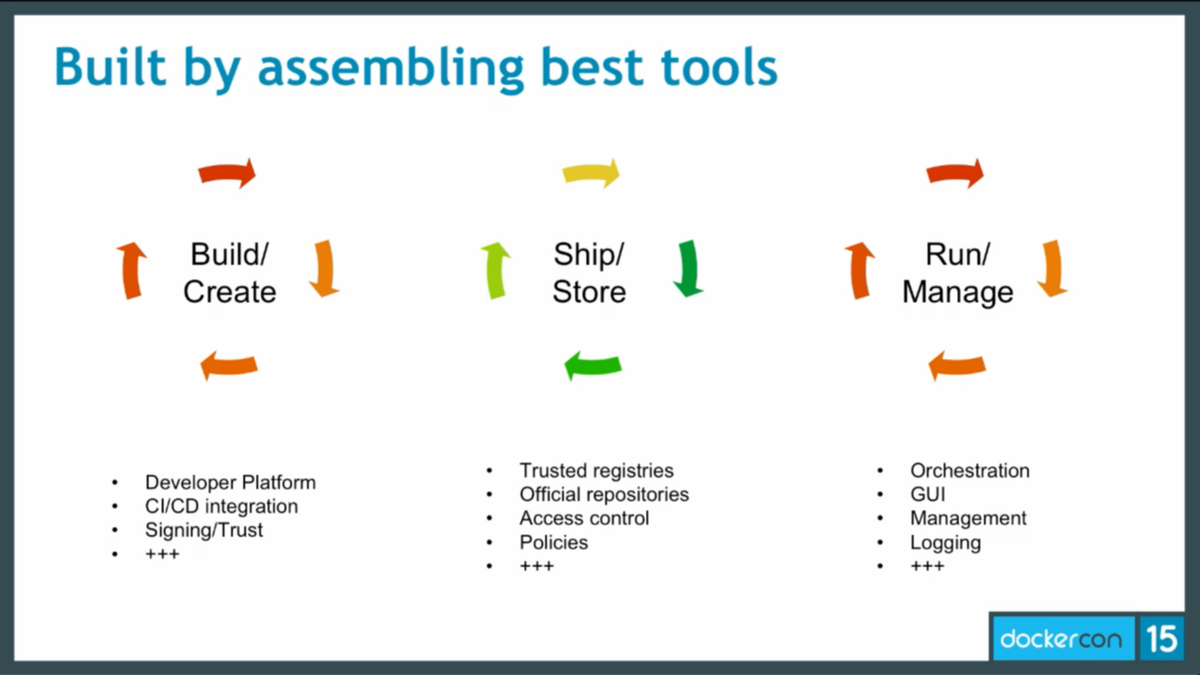Watching the lovefest of DockerConf last week had me digging up my April 2014 “Can’t Contain(erize) the Hype” post. There’s no doubt that Docker (and containers more broadly) is delivering on it’s promise. I was impressed with the container community navigating towards an open platform in RunC and vendor adoption of the trusted container platforms.
I’m a fan of containers and their potential; yet, remotely watching the scope and exuberance of Docker partnerships seems out of proportion with the current capabilities of the technology.
The latest update to the Docker technology, v1.7, introduces a lot of important network, security and storage features. The price of all that progress is disruption to ongoing work and integration to the ecosystem.
There’s always two sides to the rapid innovation coin: “Sweet, new features! Meh, breaking changes to absorb.”

Docker Ecosystem Explained
There remains a confusion between Docker the company and Docker the technology. I like how the chart (right) maps out potential areas in the Docker ecosystem. There’s clearly a lot of places for companies to monetize the technology; however, it’s not as clear if the company will be able to secede lucrative regions, like orchestration, to become a competitive landscape.
While Docker has clearly delivered a lot of value in just a year, they have a fair share of challenges ahead.
If OpenStack is a leading indicator, we can expect to see vendor battlegrounds forming around networking and storage. Docker (the company) has a chance to show leadership and build community here yet could cause harm by giving up the arbitrator role be a contender instead.
One thing that would help control the inevitable border skirmishes will be clear definitions of core, ecosystem and adjacencies. I see Docker blurring these lines with some of their tools around orchestration, networking and storage. I believe that was part of their now-suspended kerfuffle with CoreOS.
Thinking a step further, parts of the Docker technology (RunC) have moved over to Linux Foundation governance. I wonder if the community will drive additional shared components into open governance. Looking at Node.js, there’s clear precedent and I wonder if Joyent’s big Docker plans have them thinking along these lines.
Pingback: Why Fork Docker? Complexity Wack-a-Mole and Commercial Open Source | Rob Hirschfeld